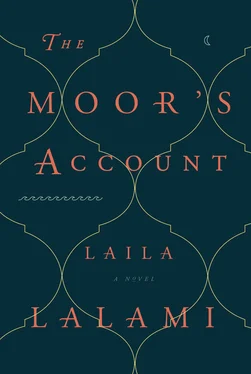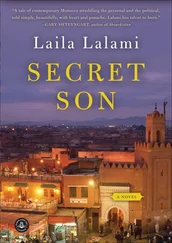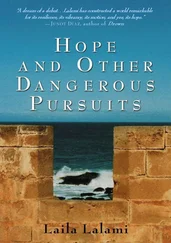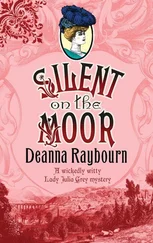My father’s new enthusiasm was dampened only slightly when five hundred Portuguese caravels appeared on the blue horizon of Azemmur. From the rooftop of our home, I saw the ships gliding closer, their billowing white sails dotting the line where the sky touched the ocean. With his usual bluster, my father said: If they want a fight, they will have it.
But in the days that followed, their cannons stayed silent — the Portuguese had chosen the way of the siege. Now we had to live in a state of uncertainty.
That night, I joined my father and uncles for dinner, taking my seat around the copper tray table that was set up in a shaded corner of the courtyard. My twin brothers, who were old enough now to eat their meals with us men, arrived late. Yahya carried the pitcher and the bowl, while Yusuf had the towel, though they argued about whose turn it was to pour the water over our hands.
But you did it yesterday, Yusuf said, his voice rising to a shrill.
Without spilling half of it on the way, Yahya replied.
I never spill.
Yes, you do.
There is no need to quarrel, I chided. Yusuf, you can carry the pitcher tomorrow, God willing.
We all took turns washing our hands. To put a stop to their squabbling, I separated my brothers, making Yusuf sit on my right side and Yahya on my left.
In the name of God, my uncle Abdullah said, reaching into the dish filled with couscous. Steam rose from the chicken and carrots that lay in the middle, their sweet and savory smells mingling in the air. We began to eat, and, while listening to my father talk about the siege of the harbor, I cut my brothers’ meat into pieces small enough for them to handle.
Of course the Portuguese want to hold on to Azemmur, my father was saying, now for the third time. But we will defeat them. You will see. He raised his forefinger in the air, with grains of couscous still stuck to it.
My uncle Abdullah regarded my father with the keen indulgence he always reserved for him, but it seemed he could not hold himself back. How will we defeat them? he asked.
With our soldiers.
Whose soldiers?
The governor’s soldiers, of course.
Brother, the governor does not have enough soldiers.
My father was quiet for a moment as he thought about this. Then he sat back against the wall. We can join the governor’s forces, he said.
Who will join them?
I will, he said fiercely, his only thumb pointed at his chest.
Come now, Brother, you are not a soldier. This was not said in meanness or in anger, and yet my father remained quiet, as though he had been insulted.
I can fight, I said hotly. And so can you, I told my uncles.
It was my younger uncle, Omar, who replied. My son, what will we fight the Portuguese with? They have eighteen thousand men. They have cannons and weapons and powder and armor and horses, and we have only our tools. The governor barely has three hundred men to his name. We must wait for the sultan in Fes to send his army.
Yes, my father said, his face alight with reckless hope. The sultan will come to our aid. God willing, he will send reinforcements.
Then my father began to tell us how, five and seventy years earlier, the sultan had sent his vizier Yahya al-Wattasi to rescue the city of Tangier from the Portuguese. Al-Wattasi had rallied troops from around the country, forced Henry the Navigator to retreat, and even starved him into submission. It was a story of courage and determination and it sounded so simple, the way he told it: round up all the soldiers and throw out the intruders.
I was about to reply when Yahya found a wishbone. He reached over me to hand it to Yusuf, who innocently took the side presented to him and tugged on it — when the bone broke, he was left with the short end. He put it on the table in front of him and quietly started eating again, ignoring Yahya’s mocking smile. Yusuf had a very gentle soul; he always fell for his twin brother’s rigged games.
I looked at my father then. His face shone with such hope that I did not have the heart to tell him that when I went to the souq on Tuesday, I had heard rumors that the sultan had sent his army to quell a rebellion in the south. Already, the siege of our harbor had ground all trade with the Christians to a halt and made it impossible to get to the merchandise that sat on the other side of the Umm er-Rbi’ River. Even the chicken we were eating I had procured from a merchant for whom I sometimes ran errands, though my father, perpetually engaged in conversations with other notaries and scholars, never suspected it.
A week later, when the Portuguese soldiers started their assault, the governor’s forces could offer them little resistance.
Azemmur fell.
Only then did my father’s mood turn somber. We should have known better than to rely on that devious sultan, the burtuqali, he said. Muhammad al-Burtuqali had earned his nickname because, as a child, he had been held hostage for seven years by the Portuguese while a treaty between our two kingdoms was negotiated. My father doubted both the will and the ability of a man named Muhammad the Portuguese to actually fight them. Over the next few months, my father and I watched helplessly as a fort was built at the edge of the town, hiding our horizon behind high walls, and a white flag with the red shield of the infidel king was hoisted over the tower. The tax was levied again.
Patience, my father counseled. They will leave. They must.
My beloved father was right.
They did leave, though neither he nor I would be there to witness it.
AFTER THE BATTLE OF AZEMMUR, my father’s dark eyes acquired a melancholy expression that never left them. Wrapped in his white linen cloak, he floated quietly in and out of our bustling house, absorbed in thoughts he did not share with any of us. Nothing pleased him — an invitation from my grandfather to visit Fes drew only a shrug of the shoulders; a bowl of pomegranate fruit, lovingly peeled and sprinkled with rosewater, was left untouched next to his pipe; a close shave in the barber’s chair no longer brought a smile to his face; a new shirt with silver trimming and black velvet buttons was put on with the same hurry as any old house shirt. And nothing vexed him, either — not my brothers getting into mischief, not my aunt Aisha’s terrible cooking, not even my sister playing the tambourine. It is a terrible thing to see your father a broken man, a terrible thing, but I was young and selfish and did not fully understand what was happening to him.
In spite of my lackluster attendance and poor performance, I had eventually learned the principles of Arabic grammar, memorized the Qur’an, and was ready to graduate from the msid. Or perhaps the fqih had tired of me: I was the oldest student in his school now, all of the boys my age having long ago earned their credentials. Either way, I was thrilled to be finished and I hoped that the celebrations we were planning in my honor would lift my father’s spirits. It was a spring day, I remember, and the air was filled with the promise of rain. I waited at the door of the msid, surrounded by my schoolmates and my fqih until my uncle Omar brought the horse, a white stallion rented for the occasion and adorned with colorful green garlands. I mounted it and was led through the crooked streets of my hometown, with friends and strangers alike cheering me on, until we reached our house, where my father awaited me. Behind him, the blue door was wide open — I could see our guests and neighbors filling our courtyard, all of them calling out congratulations or trilling joy-cries as I dismounted. I walked into our receiving room and sat on an elevated cushion, surrounded by our guests.
May God bless you, they said.
May He grant you a long life.
I remember the day you were born.
I was the one who carried him through that door.
Читать дальше












